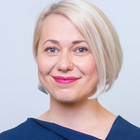Putting gender equality first
Three cornerstones for Germany’s Feminist Development Policy
Friesen, Ina / Alma WisskirchenThe Current Column (2022)
Bonn: German Development Institute / Deutsches Institut für Entwicklungspolitik (DIE), The Current Column of 2 May 2022
Following Germany's announcement to pursue a feminist foreign policy, the Minster for Economic Cooperation and Development (BMZ) Svenja Schulze declared the adoption of a feminist development policy (FDP). The aim of the feminist development policy is the promotion of the “equal political, economic and social participation of all people - irrespective of gender, gender identity or sexual orientation”. To ensure that this commitment leads to a truly transformative feminist approach in Germany's development policy, it should be built on three key pillars: 1) a broad understanding of and an intersectional approach to gender 2) a clear policy goal, and 3) increased financial means for gender-focused programming.
First, the feminist development policy should enshrine a broad understanding of gender rather than a binary one. While the BMZ’s previous Gender Action Plan II 2016-2020 does not define gender but almost exclusively referred to women and girls as the target of gender equality policies, the new feminist development policy should be based on an acknowledgement of the multitude of marginalised groups with girls and women, boys and men, as well as non-binary people being subject to unequal power relations. Furthermore, the policy should pursue an intersectional approach to gender that recognises that additional factors such as age, ability, class, culture, religion and sexual orientation can amplify inequality.
Second, the ministry should clarify what kind of feminist approach it pursues and set a clear overarching goal for its feminist development policy. It should answer the question: What is the problem that feminist development policy is meant to address? While feminist approaches share the concern for equality of opportunity for all individuals, they differ in the means of achieving equality and fall into two categories: the instrumentalist and the transformational approach. Whereas the former seeks to enable individuals to succeed within existing political and economic processes, the latter acknowledges the power relations and inequalities that perpetuate gender inequality and aims to address these structural barriers. Canada, for example, promotes gender equality as a means to eradicate poverty, while Sweden pursues gender equality as an end in itself. So far, Schulze’s elaborations on Germany’s FDP follow Sweden’s model of emphasising the “three R’s”: the promotion of women’s and girls’ full enjoyment of human rights, women’s representation in decision making at all levels and in all areas, and suitable resources to achieve both. Whether this also means that Germany follows a transformative approach to gender equality which implies a shift from the current focus on poverty reduction towards a prioritisation of gender equality remains unclear. Minister Schulze for example pointed out that the promotion of gender equality requires the dismantling of existing patriarchist power structures, which signifies a transformative approach to gender equality. At the same time, however, Schulze frequently argues that gender equality is a key factor for overcoming hunger and poverty and that women’s participation in peace negotiations has a long-term positive impact on their outcome. While these facts are empirically proven, the minister’s statements insinuate an instrumentalist approach that sees women as a stepping stone to fixing poverty and conflict. The ministry needs to clarify the aim of its feminist development policy as this builds the foundation for future programming.
Finally, Germany should increase its allocations for gender-focused programmes and support sectors where gender equality is less established. In 2019, Germany spent 46% of its total bilateral allocable Official Development Assistance (ODA) on development activities that targeted gender equality in some way, which is far behind Canada’s (96%) or Sweden’s (85%) allocations. Furthermore, only 4.7% of Germany’s total bilateral ODA was aimed at projects and programmes that targeted gender equality as a principal objective. Germany’s commitment to a feminist development policy should therefore be reflected in programming that has a stronger focus on gender equality, increased funding commitments for activities that target gender equality as a principal objective and a timeline for specific outcomes.
Germany’s announcement of a feminist foreign and development policy is the right step towards gender equality. These three pillars are necessary to develop a coherent approach with objectives and the means and resources to achieve them. Crucially, the same recommendations should apply to the German feminist foreign policy, as a coordinated approach is essential for an effective promotion of feminist objectives.


